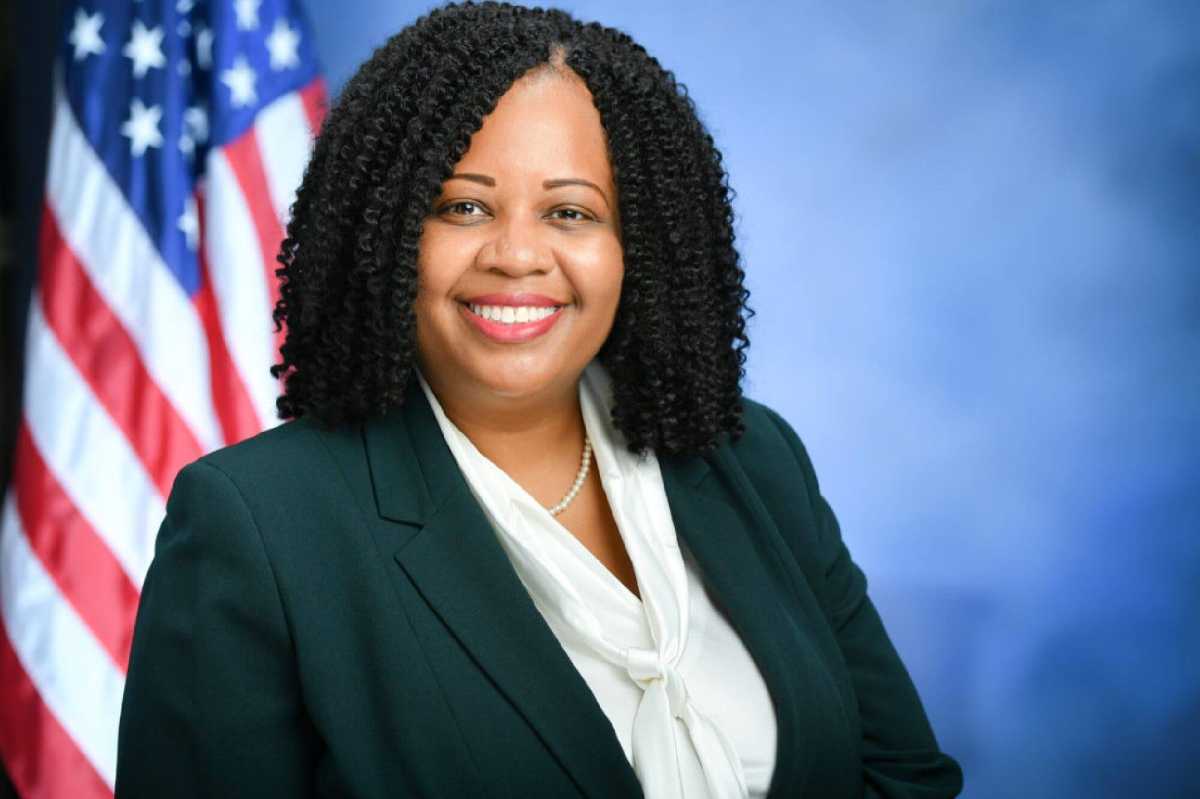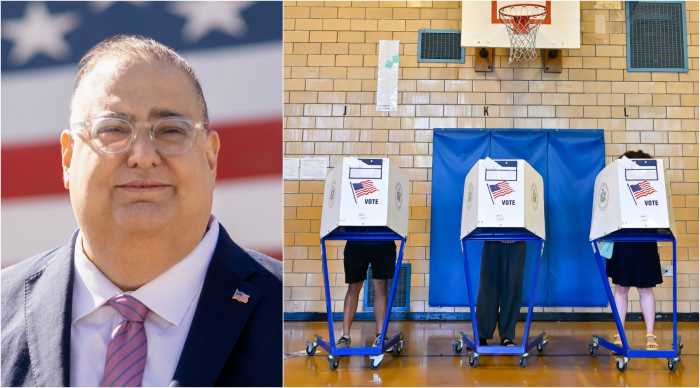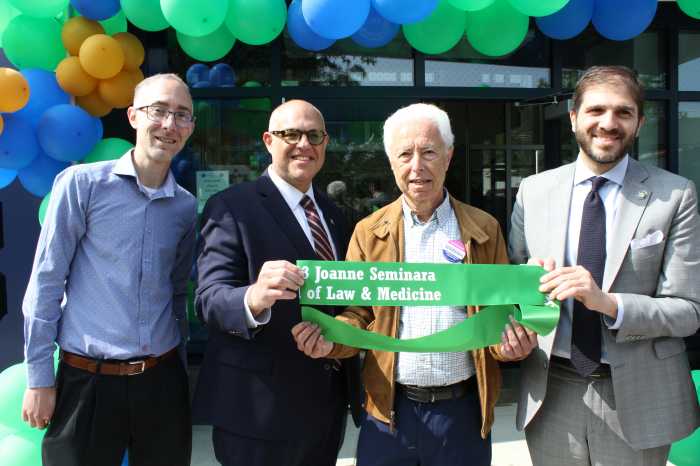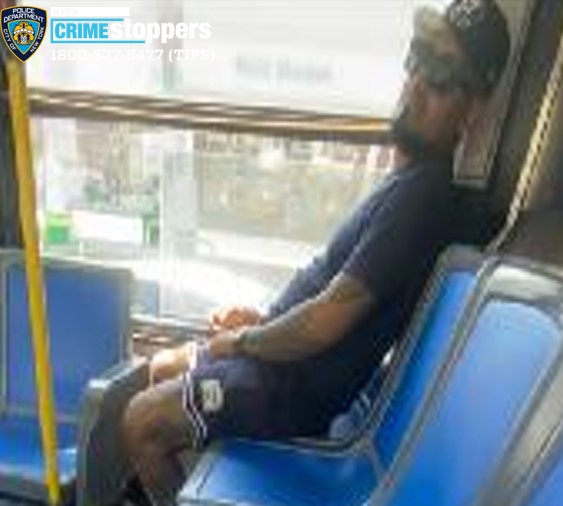Mathylde Frontus is a New York State Assemblywoman currently serving the neighborhoods of Bay Ridge, Dyker Heights, Coney Island, Sea Gate, Bath Beach, Brighton Beach and Gravesend.
To celebrate the relaunch of the Bay Ridge Courier, we’re “checkin’ in” with each of the area’s representatives to discuss a topic of their choosing. This week, we caught up with Frontus about her work related to mental health — and how 2020 has underscored the need for mental health services.
Brooklyn Paper: It should go without saying that 2020 has been a challenge for many Americans. How do you see the current political, social and economic climates having an affect on one’s mental health?
Mathylde Frontus: First, let me say thank you for reaching out and “checkin’ in” with me. I’m at the end of my first term as the new representative for the 46th Assembly District and it has certainly been an extraordinary experience and an honor and a privilege to represent the area where I grew up. But there’s certainly been a lot going on. The beginning of the year, we didn’t know we were going to be faced with two sort of unprecedented moments in our nation’s history — the first being a literal global pandemic, with no hyperbole — and the second, as you know, some people have said that the protests happening around the country have become our second pandemic, as a matter of speaking. It seems as though this year we’re reckoning with these larger existential questions in terms of who we are as Americas — who are we really, not only who we say we are. Do we believe there’s room at the table for everyone? Do we believe that justice and equality is important?
Those two pandemics, so to speak, are affecting the mental health of Americans — and certainly the people in my district. Whether it’s the toll of COVID — worrying about the health and safety of ourselves and our loved ones — or the racial injustices, and the killing of unarmed Americans. Both of these things are having a significant affect on people’s mental health — especially for Black Americans who feel personally victimized every time we have to see a video of people that look like us getting killed. It’s hard to put into words how it makes people feel, but in the end it makes you question the validity of your own life. And it feels like, right now, all Americans are feeling traumatized by that.
BP: What has it been like, as a lawmaker, navigating these two pandemics, so to speak?
MF: It’s interesting to be a lawmaker and an elected official against those two backdrops. There’s no manual, of course, to tell you how to deal in response to either of those things but both of those things have affected me personally — and both of those things have impacted my constituents. It’s felt very personal, so it’s been very interesting to navigate that.
BP: How does the topic of mental health tie into your professional life?
MF: Mental health has been one of my signature issues since the beginning — it’s not my only one, but when people think about me and the hats I wear, I think mental health is one of those things they know is at the forefront of my mind. That’s partly because of my academic training, which has been in social work and psychology, so it’s a topic that I’ve always cared about. Just this summer, I taught a class called Stigma and Mental Health at my alma matter and that course was important to me because I think that mental health is one of the last open stigmas that we have in our society.
You can tell a total stranger that you just got diagnosed with diabetes, cancer or any other type of prognosis but there’s still a really deep stigma to tell people about our mental health battles because there’s a perception that people think of us as weak or that there’s something wrong. People are also afraid of the costs that may come with that admission, so we as a society err on the side of not talking about it.
In that vein, I found myself really thinking about mental health legislation.
BP: How does the issue make its way into your legislative work?
MF: I’ve had a range of legislation that I’ve been working on this year. I spoke with a young lady from another state who talked about her own mental health experience going to a psychiatric ER for a suicide attempt and she couldn’t believe the experience she had when she was admitted. There was no attempt to provide any suicide counseling. She thought it was really such a gross oversight and a missed opportunity. I was happy to take that conversation and [bring in] Jacob [Goldfinger,] who is my legislative and communications director, who started having ongoing conversations about different pieces of mental health legislation that we can tackle.
One of the bills we worked on requires emergency medical facilities to provide immediate assessments [of patients experiencing a mental health issue]. If an ambulance comes and takes your sister to the closest psychiatric emergency room, she shouldn’t have to just lay there and wait for a couple of hours going through paperwork and answering question. Upon admission, there should be some attention given to deescalate the person’s suicidality and make sure there is someone there to provide some sort of counseling and assess their risk of self harm.
In relation, we also introduced [legislation which looks at] all the sorts of health practitioners who come in contact with people who may be suicidal. We wanted to make sure that those practitioners do a minimum of some suicide risk assessment and intervention training — something that just seems like it should already be in place, but the fact is that it’s not the case. From people who respond to the scene who are transporting suicidal patients to even some of the front line staff in the ER, they should all complete some hours of training.
We’ve also introduced a bill which would mandate that mental health services be provided to students in public schools to determine whether or not someone is in need [of treatment]. That one is especially important to me, and it has been well before I joined the Assembly. I did a lot of community work and spent a lot of time helping to fight gun violence in the community, and what I found is that a lot of time we underestimate the toll certain incidents can take on children. A lot of times, we’re missing an opportunity inside the schools to help address these issues on an emotional level.
BP: What do you want those who may be struggling with their own mental health to know?
MF: The city has so many services, it’s pretty incredible. There’s a 24/7 hotline, 1-888-NYC-WELL. That hotline is under the auspices of the New York City Department of Health and Mental Hygiene where any New Yorker can call and have someone speak to them if they’re in need of support or if they’re going through something — or if someone they know and love needs support.
There’s another organization called NAMI that I work closely with that does pretty impressive work. NAMI stands for the National Alliance on Mental Illness, which you know is a word that people don’t want to hear, or they may be adverse to. But they are a national organization that offers so many services for people who may need support, or who have a family member that needs support.
Lastly, I want everyone in my district — whether they are struggling with mental health or not — to know that we have a brand new Bay Ridge office that we’re really excited about. That’s located at 310 93rd Street. Our doors are always open.

























